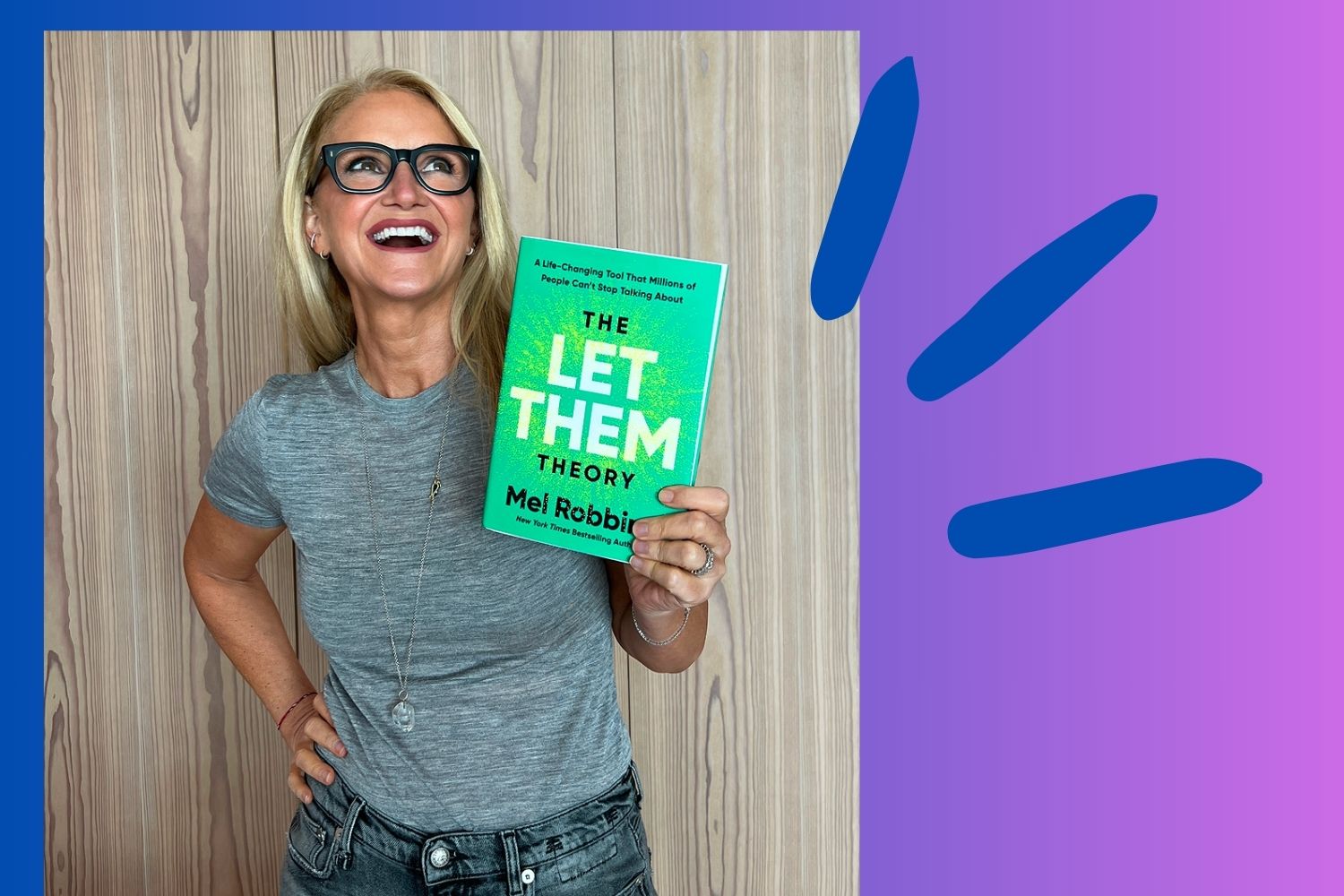
How to quiet your inner critic and be kind to yourself
This is an exclusive excerpt from “Conquer Your Inner Critic,” a chapter of the book Stop Waiting for Perfect by L’Oreal Thompson Payton
Have you heard the way you talk to yourself? Like, have you paused a beat to really listen to the inner monologue that runs through your head day in and day out? Chances are, if you’re like most people—if you’re like me—it isn’t very kind, which is too bad considering the voice we listen to most frequently is our own.
During my second-ever therapy session, my therapist noted, “What I’m hearing is that you’re not very kind to yourself.” I was taken aback. I’m a big sister, former cheerleader, and semi-professional hype woman; pep talks are my jam! What do you mean I’m not kind to myself? I was offended, but I had to admit she had a point.
Try as I might to silence my inner critic (aka Negative Nancy), she was pervasive. And she was especially loud and awfully critical when I started the new communications director job I mentioned earlier. In fact, she had a bad habit of showing up during most of my big life events and transitions. And her message was loud and clear: What are you doing? Nancy would ask. You can’t do this. You don’t know what you’re doing!
In early 2018, as I started my fancy new nonprofit job with my fancy new director title, Nancy was especially loud and I was feeling wayyy out of my league. I mean, I’d just switched from full-time journalism to nonprofits only three years prior; surely I wasn’t qualified to be leading a communications strategy for a national organization. Maybe Nancy was right. Maybe I didn’t really know what I was doing. Maybe I didn’t have what it takes.
I’m far from alone when it comes to feeling like a fraud at work. According to the International Journal of Behavioral Science, nearly 70 percent of people experience self-doubt at work. And if you think that impostor syndrome disproportionately affects women, then you’re correct. In that same study, researchers found that 40 percent of women feel intimidated by senior staff members, compared to 22 percent of men.
My friend Taylor Morrison, author and founder of Inner Workout, a self-care support system, has also admitted to feeling like a fraud in new situations. “I know I’m smart and I have things to offer, but I find myself shutting down [when faced with imposter syndrome],” she said. “Then you get to the part where I run a company and we’re selling to other companies, and I find myself feeling like this was a fluke. My default can be, ‘Oh, that was terrible,’ until the client shares feedback that it was amazing. There’s still a piece of me that doesn’t believe I’m as good at what I do as I actually am.”
Another friend, Jessica Williams, side hustle expert and creator of the #JessPicks newsletter, is quite familiar with her inner critic as well. “I feel impostor syndrome anytime I put myself out there. On the one hand, I’m like ‘Ooh, that’ll be fun.’ On the other hand, I wonder, Am I the right person? Do I know enough? I’m not really an expert,” she shares. “People call me the Side Hustle Queen or refer to me as a side hustle expert, and I’m like, ‘Am I really?’ I feel like self-doubt is always under the surface, and there’s that inner critic that’s kind of there to pro- tect you. Or at least that’s what it thinks its purpose is—to keep you safe and make sure you don’t embarrass yourself. But it also holds you back a little because if you listen to it, it’s just going to keep you safe and comfortable in that little box you’re in.”
Your Inner Critic’s Biggest Fear
In my best Carrie Bradshaw voice, I couldn’t help but wonder if maybe, just maybe, our inner critics are just as afraid as we are. And that’s why they work triple time to keep us safe in moments it seems like we’re about to tiptoe out of our comfort zone? I’m not sure it’s possible to eliminate our inner critic altogether. First and foremost, we’re human, which means we’re fallible. Besides, perfection isn’t what we’re striving for here anyway. Instead, I propose that we learn to make peace with our inner critic knowing that every moment won’t exactly be peaceful. But in order to do that, we must take some time to understand why our brains are hardwired toward negativity in the first place.
Name It to Tame It
Though it’s debatable exactly how many thoughts we have per day (estimates range from 6,000 to 60,000), researchers seem to agree that the majority of them (around 80 percent) are negative and 95 percent are repetitive. It turns out we give a lot of mental space and energy to our inner critic and they’re not even paying rent. The audacity!
But the good news is this negative self-talk isn’t your fault; it’s science. Or, more specifically, it’s “negativity bias,” a phenomenon that causes us to attach more significance to negative events than positive ones. In other words, our brains are predisposed to negative news.
According to researchers at Ohio State University, there’s a biological reason for this: “Our capacity to weigh negative input so heavily most likely evolved for a good reason—to keep us out of harm’s way. From the dawn of human history, our very survival depended on our skill at dodging danger. The brain developed systems that would make it unavoidable for us not to notice danger and thus, hopefully, respond to it.” Gee thanks, evolution.
Fortunately, not all is lost. One must “simply” replace self-criticism with self-compassion. I put simply in quotes because I know it’s easier said than done; believe me, I’ve tried. And even after several years of therapy, self-compassion still doesn’t come naturally. Criticism is my default and compassion is a practice, one that I’m constantly working on, but it’s worth it. Words matter, and the words we use when talking to ourselves matter even more. If you can change your thoughts, you hold the power to change your life. That’s not just an Insta-worthy quote; reframing your thoughts is an actual psychological tool to improve your mindset.
“If you can change your thoughts, you hold the power to change your life. That’s not just an Insta-worthy quote; reframing your thoughts is an actual psychological tool to improve your mindset.”
— L’Oreal Thompson Payton
You just read an excerpt of the “Conquer Your Inner Critic” chapter of the book Stop Waiting for Perfect by L’Oreal Thompson Payton. To read the rest of the chapter and the whole book, buy it here on Amazon or on Bookshop.



